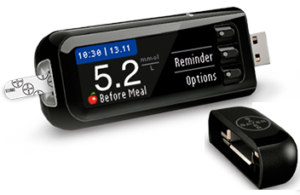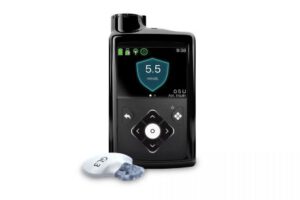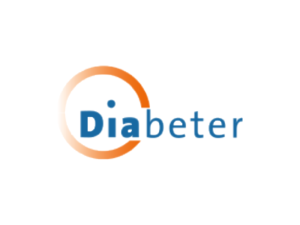The Diabeter approach seems simple: an independent, specialised centre where diabetes is the sole focus. Specialised healthcare professionals focus on patients’ needs and continually consider the outcomes in order to determine what can be improved.
Patients with type I diabetes are continually confronted with their illness. In order to achieve healthy blood values, patients on average have to adjust their insulin 7 times a day, their nutrition 7 times a day, and their daily activities 7 times a day. They cannot do this on their own, they need help to do so. The founders of Diabeter, Dr Henk-Jan Aanstoot and Dr Henk Veeze, thought that traditional diabetes care for children and youngsters had to be improved: ‘These children and youngsters deserve a future without complications due to diabetes!’

- Target setting: what do you want to achieve and what do you want to do about it?
- Intensive monitoring and intensive contact
For the second point in particular, IoT applications can offer a solution. In addition to the fact that patients using Diabeter can make contact online, they are also monitored automatically and continually. Data from various devices (insulin pumps, glucose monitors and sensors) is gathered in a central system called VCare. Following an automatic analysis, the patient receives feedback from a real-time dashboard and in the form of trends, objectives and care plans. If values are abnormal, the treatment specialist is informed and the patient is contacted. The collective data from these patients provides a rich source for research, with which diabetic care can then be further improved. All this data has also helped developers to make the devices increasingly smart. For example, the correct dose of insulin is calculated by the device itself and there is a prototype ‘automatic pancreas’ that measures glucose levels, and calculates and administers insulin.
In 2015, Diabeter gained technological support by means of an intensive collaboration with Medtronic. Medtronic had been
developing insulin pumps and glucose monitoring devices for many years. Together with Diabeter, they are now shifting the focus to an integrated care model.

- 50% of insulin pump users have a HbA1c lower than 7.5% (the national and international guidelines for children and adolescents with type I diabetes)
- Each year, only 3% of Diabeter patients have to be admitted to hospital (the national average is 8%)22
The 2000 youngsters undergoing treatment using Diabeter will grow up healthier in the long term. This means that diabetes-related complications in elderly patients can potentially be prevented.
Henk-Jan Aanstoot has noted that people who can continually keep track of their own state of health thanks to new technology and the associated methodology almost no longer need Diabeter. If developments continue, healthcare professionals of the future will primarily fulfil the role of coach for these patients.

